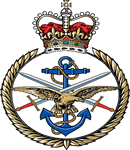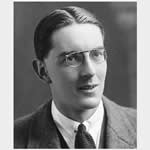Commemorated: | |||
| 1. Memorial: | Basra Memorial | Panel 43 and 65. Basra | |
| 2. Book: | The (1921) Masonic Roll of Honour 1914-1918 | Pg.130 | |
| 3. Memorial: | The (1940) Scroll - WW1 Roll of Honour | 3A GQS | |
Awards & Titles: | |||
Service Life:
Campaigns:
- The First World War 1914-1918, World-wide.
| Unit / Ship / Est.: 1/Gurkha Rifles |
| Action : Mesopotamia |
At the outbreak of war the British, together with Indian troops, resolved to protect oil supply in the region by occupying the area around Basra at Abadan. This evolved into a series of campaigns towards Baghdad against the Turkish forces as Mesopotamia (modern Iraq) was part of the Ottoman Empire. Meetings in late 1914 and into 1915 led the Viceroy and Indian government at Simla to reconsider the limited involvement of troops and they decided to order further advances with a view to securing the Shatt-al-Hai, a canal connecting the Tigris and Euphrates river and potentially capturing Baghdad. The British government disagreed and wished to conserve forces for the Western front. The Viceroy was given permission to act as it wished, but told in no uncertain terms that no reinforcements should be expected.
The initial success experienced by the British and Indian forces quickly disintegrated in the face of Ottoman opposition. The Siege of Kut-Al-Amara began on 7th December with the besieging of an 8,000 strong British-Indian garrison in the town of Kut, 100 miles south of Baghdad, by the Ottoman Army. These campaigns produced few tactical benefits, indeed the catastrophic defeat at Kut in 1916 was a major setback. Badhdad was eventually taken in March 1917.
The conditions in Mesopotamia were dreadful. The climate, sickness and disease produced large losses in addition to battle casualties. About as many men died of disease as were killed in action. The Mesopotamia front was part of a strategy hoping for success at lower cost than the Western Front but no decisive victory was achieved.
Detail :
Lt Nelson was an Exhibitioner of Wadham College, Oxford and of Corpus Christi College Cambridge, graduating in 1912. After joining the Officer Training Corps, he served with the Calcutta Light Horse in 1913. In January 1915, Lt Nelson transferred to Queen Victoria's Own Corps of Guides before being attached to the Gurkha Rifles. He served in Mesopotamia in 1916 and participated in the capture of Kut and Baghdad. Lt Nelson was killed in action, aged 26, at Mushaidie on 15 March 1917. He is commemorated on the Basra Memorial in Iraq.
The King's School Cantebury has further detail:
"At 7pm on the evening of the 13th of March 1917 the 1st Battalion 8th Gurkha Rifles received orders for a Brigade attack on enemy positions along both sides of the railway line at Mushada. At 7am the next morning they assembled at a point some five miles from their objective At 8am the Brigade deployed for the attack on the east side of the railway and began their move forward. At 8am, after a two mile advance, they stopped to receive final orders after which they crossed to the west side of the railway line under a culvert and were in position for the assault at 3pm. The 2nd Battalion Black Watch were to attack on the right of the Brigade with their right flank on the railway line. The 9th Bhopal Infantry were to be in the centre with the 1/8th Gurkha Rifles on the left of the attack with their left flank protected by cavalry. Captain Bernard Abbott MC was to lead the Gurkha left wing with Ernest Nelson leading the right wing of the four hundred strong Gurkha force. At 3.20pm the advance began and after about a half a mile the line came under "light and poorly aimed" shrapnel fire. When some 2,000 yards from the enemy line they came under rifle fire but this was ineffective. When they were 250 yards from their objective the enemy machine guns opened fire from a strongly held hill on the right of the attack. At 6.20pm the artillery fired a barrage on the hill and the Gurkhas rushed forward and carried the position with the enemy retreating without putting up any resistance. Both Captain Abbott and Ernest Nelson had been wounded in capturing the objective. At 7pm the advance continued and the railway junction at Mushada fell at midnight at the point of the bayonet with the enemy falling back in disarray.
The following day the battalion received the news that Ernest Nelson had died of his wounds at a field hospital."
Masonic :
| Type | Lodge Name and No. | Province/District : |
|---|---|---|
| Mother : | Oxford and Cambridge University No. 1118 E.C. | London |
| Joined : | Lodge of Industry and Perseverance No. 109 E.C. | London |
Initiated | Passed | Raised |
15th November 1912 | 17th January 1913 | 28th March 1913 |
Initiated into Oxford and Cambridge University Lodge No. 1118, aged 21 and is recorded as having died in the service of this Lodge. His recorded war service (w.s) is shown to be from 1915 until his death in 1917. His name appears twice on the Roll of Honour under his mother and the Lodge he joined - Lodge of Industry and Perseverance No. 109. He joined that Lodge in Calcutta on the 21st November 1913, coinciding with his service with the Calcutta Light Horse.
Source :
The project globally acknowledges the following as sources of information for research across the whole database:
- The Commonwealth War Graves Commission
- The (UK) National Archives
- Ancestry.co.uk - Genealogy, Family Trees & Family History online
- ugle.org.uk - The records of the United Grand Lodge of England including the Library and Museum of Freemasonry
Additional Source:
- Founder Researchers : Paul Masters & Mike McCarthy
- Researcher : Bruce Littley

